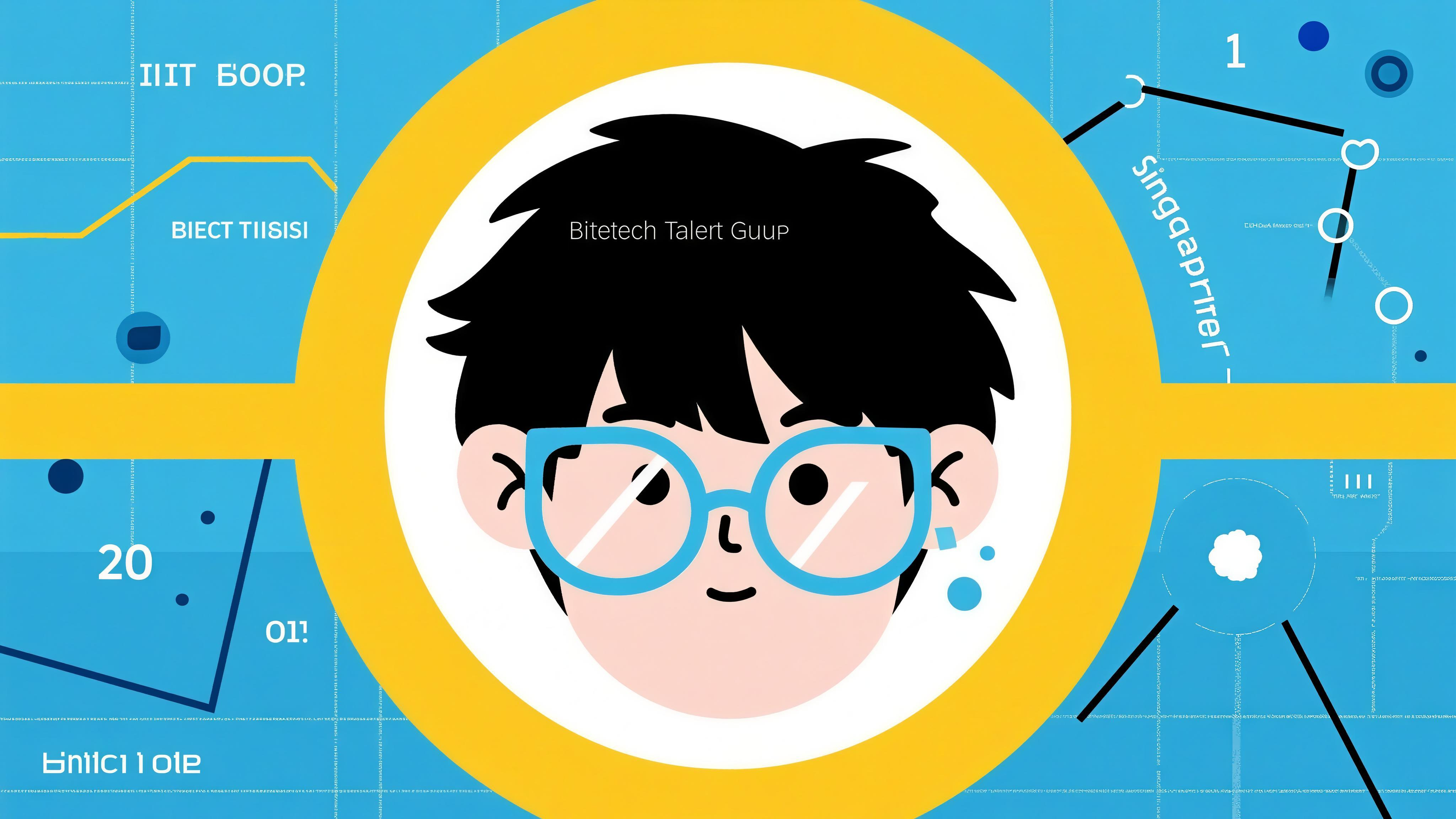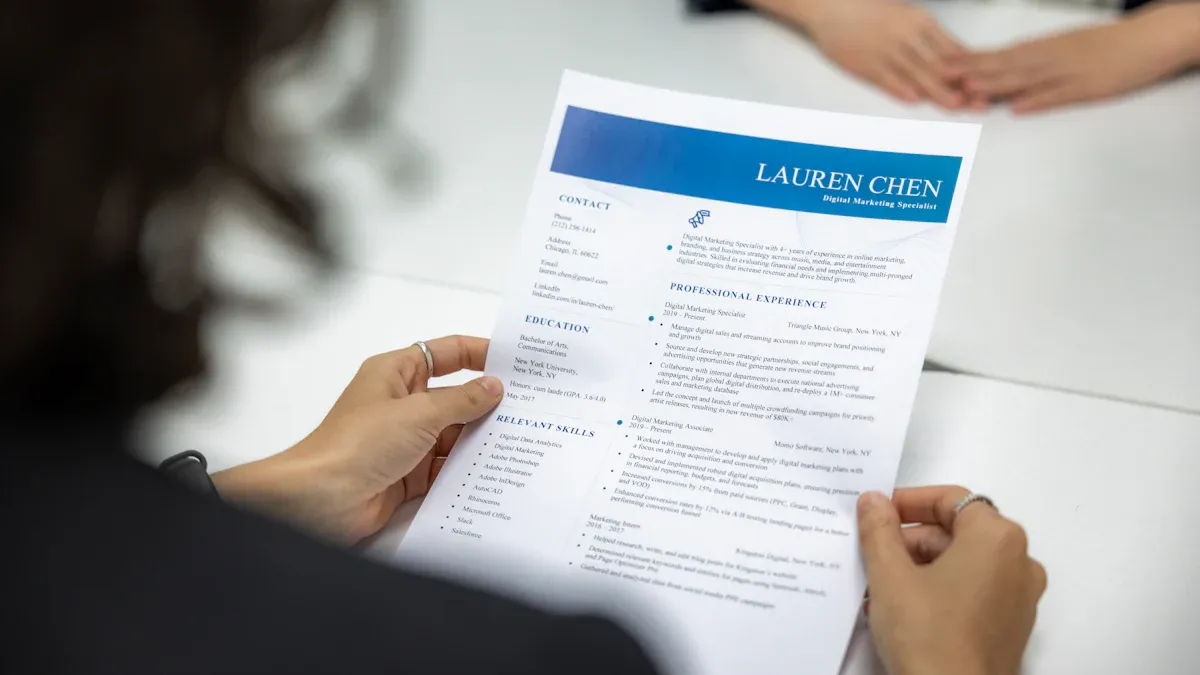Fortify Singapore’s Biotech Teams: Build an ATS‑Powered Talent Reserve for Researchers

An ATS-powered talent reserve significantly enhances healthcare talent acquisition in Singapore’s biotech sector. With advanced hiring tools, teams can hire faster, connect more effectively, and retain workers longer. Singapore leads Southeast Asia in digital hiring for MedTech and precision biotech, yet it still trails behind North America and Europe in leveraging AI for large-scale recruitment. Healthcare talent acquisition Singapore teams can utilize these innovative tools to address challenges quickly. A tech-driven talent pipeline fosters new ideas and ensures teams are prepared for future growth.
Biotech Talent Gaps

R&D and Regulatory Challenges
Singapore’s biotech sector does not have enough skilled workers. This affects research and rules for new products.
There are not enough people for every job, but the biggest problem is with senior and C-suite roles. These jobs need both science and business skills, which are hard to find in Singapore.
More junior and mid-level workers are available. Schools and programs like A*STAR’s T-Up Programme help train new people.
Many senior workers leave for bigger companies. This makes it hard for local companies to grow.
There are not enough researchers who know artificial intelligence and machine learning. These skills are important for finding new medicines.
There are only a few local contract research organizations (CROs). This means fewer chances for people to manage outside research work.
Companies have trouble finding people who know both science and business. This is a big problem for jobs in regulatory affairs and making more products.
Working together between public and private groups, plus special training and advice, is very important. This can help fill these gaps and help the whole sector grow.
Competition for Researchers
Singapore is a main place for biotech in Asia-Pacific, but many groups want the same skilled workers.
The local biotech scene is still growing. It is not as developed as places like South Korea, Australia, or New Zealand.
Groups like Hello Tomorrow Asia Pacific help startups, investors, and rule-makers meet. This helps startups get noticed and find money.
Contests such as the Asia Pacific Challenge and Cytiva’s Southeast Asia BioChallenge give startups help and support for making products.
Startups in ASEAN, including Singapore, have trouble growing bigger. They need more help from service providers.
Biotech in Asia-Pacific, including Singapore, is not as advanced as in North America or Europe. More contests and new ideas are needed to bring in money and talent.
Singapore’s strong research and new ideas help the sector grow fast. This growth means more jobs and higher pay for special roles. But there are fewer skilled workers and more demand, so finding and keeping top biotech workers is harder for employers.
Healthcare Talent Acquisition Singapore
ATS and CRM Integration
Singapore’s healthcare and biotech fields use new technology to hire people. Many companies use applicant tracking systems (ATS) and customer relationship management (CRM) platforms. These tools help teams keep track of job candidates and their progress. They also help build a group of possible hires for later. Recruiters can quickly find people with the right skills. They can also stay in touch with people who applied before and make a list for future jobs.
Healthcare talent acquisition Singapore teams get many benefits from these tools:
They cut down on manual work and save time.
They help recruiters find good candidates faster.
They make it easier to keep candidates interested during hiring.
Both new recruiters and experienced managers are important. Interns often do first checks and enter data. Senior recruiters use ATS and CRM information to make big decisions and fill top jobs. Working together helps healthcare talent acquisition Singapore teams stay strong and do well.
AI in Recruitment
Artificial intelligence (AI) has changed how companies pick new workers. In Singapore’s biotech field, AI tools sort resumes, match people to jobs, and set up interviews. This technology helps healthcare talent acquisition Singapore teams work better.
Some good things about using AI in hiring are:
Companies can hire faster, cutting time by up to 26%.
AI finds the best people early in the process.
AI uses data, so there is less bias in picking people.
Recruiters can spend more time talking to candidates.
A mix of AI and people works best. AI does simple tasks, while people check if someone fits the team. This way, the process is fair and still personal. Because of this, healthcare talent acquisition Singapore teams can build better and more diverse biotech groups.
Build Your Talent Reserve

Assess Needs
Each biotech company in Singapore should know what jobs it needs to fill. Leaders need to check what their teams are good at and where they need help. They should also think about what jobs they will need soon. This helps them see which jobs are most important and which skills are hard to find. Many companies look for scientists, regulatory experts, and people who know both science and business. When teams list these needs, they can make better plans for hiring.
Choose the Right ATS
Picking the right applicant tracking system (ATS) is very important. The best ATS has features that help with the special needs of biotech. Companies should pick a system that:
Lets them change workflows, templates, and questions for each job, like for scientists or sales.
Helps different departments work together, with calendars, emails, and notes.
Lets them tag and group candidates, so it is easy to keep in touch and send messages to many people.
Works with tools that test skills for certain jobs.
Gives reports and data to track how hiring is going for each job.
Lets them change job ads and forms to get the right people.
Automates steps and sets who can see what, to keep hiring safe and fast.
Offers training and help for recruiters and managers.
These things help biotech companies give candidates a better experience and get better results. A good ATS makes hiring easier for both new and senior jobs.
Source and Engage Talent
Finding and keeping top biotech workers in Singapore takes planning. Good recruiters use special ways that match the company’s goals and culture. They look for people who like new ideas and want to grow. Building strong networks helps companies find both people looking for jobs and those who are not. Programs like the Helix Immersion Programme by SGInnovate give training, mentors, and real work experience. These programs help attract researchers who want to learn and grow. Companies face problems like not enough skilled workers, high pay demands, and big companies taking talent. To solve these problems, companies should:
Give good pay and clear ways to move up.
Build a strong brand that shows they care about new ideas and growth.
Use many ways to find people, like job boards, events, and working with schools.
Talk clearly and often with candidates.
Healthcare talent acquisition Singapore teams use these ideas to find more skilled people and keep them interested.
Maintain and Activate
A biotech talent reserve only works if it is kept fresh and active. Companies need to talk to possible hires often. They should offer chances to learn, get mentors, and meet others in the field. Many Singapore biotech startups use programs like Startup SG Accelerator and Global Innovation Alliance to help talent meet leaders and get resources.
Good ways to keep a talent reserve working are:
Giving chances to learn and grow all the time.
Making a work culture that is creative and helpful.
Offering good pay and benefits.
Using mentors and networking to keep people interested.
Checking in with people in the reserve to tell them about new jobs.
These steps help companies fill jobs fast and keep growing.
Ensure Compliance
Taking care of candidate data in Singapore’s biotech field means following strict rules. Companies must obey the Personal Data Protection Act (PDPA) and other laws. Important steps include:
Check IT systems often to stop data leaks.
Follow Ministry of Health rules for keeping and sharing health data.
Get clear permission before using people in research, and keep their information safe.
Do not try to find out who anonymized data belongs to or share human samples without the right okay.
Never share personal research data unless people cannot be identified, except when the law says it is okay.
Companies should teach staff these rules and use safe ATS systems with set permissions. By keeping data safe, companies protect candidates and build trust in their talent reserve.
Maximize Value

Proactive Hiring
Proactive hiring helps biotech companies in Singapore do better. Leaders check what training workers need and find missing skills. This lets them hire for the most important jobs. Teams can get ready for new projects and changes. Companies make plans to change how they work. These plans include building a list of possible hires and making clear job paths. This makes sure there are always skilled workers.
Check what training is needed and find missing skills.
Build lists of possible hires and clear job paths.
Use ways to keep workers, like credits for senior staff and hiring all kinds of people.
Use tech and grants to get ready for the future.
Ways to keep workers help companies keep good people. Credits for senior staff and hiring all kinds of people help keep teams steady. Tech grants help teams learn new things and get ready for new biotech problems. When companies plan early, they fill jobs faster and keep work going. A strong, tech-based list of workers helps new ideas and growth. Singapore has good laws, top research places, and money from the government. These things make it safe for new ideas. Visa programs and working with other countries bring in top workers. This makes Singapore a top place for biotech.
Diversity and Agility
Diversity and agility help Singapore’s biotech companies do well. Teams with leaders from many backgrounds have more new ideas and do better work. Studies show that teams with different ages, job skills, and school backgrounds make more new things. Teams with people from many cultures are more creative and work better together. This works best when companies set clear rules for talking and teach about different cultures.
Singapore’s biotech field grows fast because the government helps and cares about talent. Agile talent management lets companies change quickly when the market changes. Companies find and grow key skills, focus on skills instead of just jobs, and make new roles when needed. Moving workers to new projects inside the company helps fill jobs that are needed fast.
Planning ahead and knowing the market help teams change quickly.
Trust and including everyone help keep workers and make new things.
Agile ways and different teams help Singapore’s biotech companies stay ahead, make new things faster, and grow in a changing world.
Singapore’s biotech leaders can make a strong ATS-powered talent reserve by doing these things:
Look for special biotech talent groups.
Use AI tools to sort candidates into groups.
Mix tech tools with expert recruiters.
Find people who are looking for jobs and those who are not.
Have recruitment experts work at the company.
Start group projects to find hidden talent.
Use talent maps and learn about the job market.
Make messages and company image fit each person.
Work closely with top leaders and HR teams.
Groups get help from places like MyCareersFuture, JobStreet, and government programs that support new tech. Following local rules and giving training helps healthcare talent acquisition Singapore teams do well.
FAQ
What is an ATS-powered talent reserve?
An ATS-powered talent reserve is a digital list of job candidates. Companies use an applicant tracking system to keep and sort profiles. This helps recruiters find skilled workers fast when jobs open.
How does AI improve biotech recruitment in Singapore?
AI looks at resumes, matches skills, and sets up interviews. Recruiters save time and make fair choices. Companies fill jobs faster and find better people. AI tools help teams focus on the right candidates.
Why is data security important in biotech hiring?
Biotech companies have private data. They must keep candidate information safe to follow Singapore’s rules. Secure systems help job seekers trust companies and stop data leaks.
What roles benefit most from a talent reserve?
Jobs in research, regulatory affairs, and leadership benefit most. Companies fill these jobs faster and keep projects on track. A strong reserve also helps with sudden hiring needs.
See Also
MokaHR Joins Forces With C&T To Improve Talent Management
Expert Tips For Using ATS To Discover Top Talent
Boost Employee Productivity With Effective Talent Management Tools
Building Strong Teams Through Applicant Tracking System Solutions
From recruiting candidates to onboarding new team members, MokaHR gives your company everything you need to be great at hiring.
Subscribe for more information

